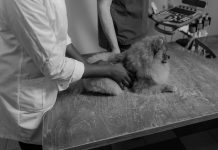Welcoming a new puppy into your home is a joyous occasion filled with boundless energy, wagging tails, and lots of cuddles. As a new pet parent, ensuring your puppy’s health and well-being is one of the most rewarding responsibilities you can undertake. With their playful antics and curious nature, puppies require special care and attention to thrive. In this article, we’ll explore the best tips for maintaining your puppy’s health, offering guidance that will help you nurture a happy, healthy companion. From nutrition and exercise to routine vet visits and socialization, these insights will equip you with the knowledge needed to provide your furry friend with the best start in life. Let’s embark on this heartwarming journey together, ensuring your puppy grows into a strong and vibrant member of your family.
Creating a Balanced Diet for Your Furry Friend
Ensuring your puppy’s health starts with a nutritious and well-rounded diet. As your furry friend grows, their dietary needs will evolve, requiring a balance of proteins, fats, carbohydrates, vitamins, and minerals. Proteins are essential for muscle development, so include high-quality sources like chicken, beef, or fish. Fats provide energy and support brain health, with healthy options such as fish oil or flaxseed oil. Don’t forget carbohydrates from whole grains or vegetables, which offer energy and fiber.
- Proteins: Lean meats, eggs, and legumes.
- Fats: Omega-3 rich oils like fish or flaxseed.
- Carbohydrates: Brown rice, sweet potatoes, and peas.
- Vitamins and Minerals: Leafy greens and supplements as needed.
Incorporate a variety of foods to ensure a full spectrum of nutrients. It’s vital to adjust portion sizes as your puppy grows and consult with a veterinarian for personalized dietary advice. Remember, every puppy is unique, and understanding their specific needs will help them thrive.

Essential Vaccinations and Preventive Care for Puppies
Ensuring your puppy receives the right vaccinations and preventive care is vital for their health and well-being. During their first year, puppies are particularly vulnerable to a range of infectious diseases, making a structured vaccination schedule crucial. Here’s what you need to know:
- Core Vaccinations: These are essential for all puppies. They include vaccines for Canine Parvovirus, Distemper, Adenovirus, and Rabies. Consult with your veterinarian to establish the best schedule for these vaccinations.
- Non-Core Vaccinations: Depending on your puppy’s lifestyle and environment, additional vaccines such as Bordetella (for kennel cough) and Lyme disease might be recommended.
- Preventive Care: Regular vet check-ups, deworming, and flea and tick prevention are equally important to keep your puppy healthy and happy.
Remember, every puppy is unique, and your vet is your best resource for tailoring a preventive care plan that fits your furry friend’s specific needs. By keeping up with these essential health measures, you’re laying the foundation for a vibrant and joyous life for your puppy.

Understanding Your Puppys Exercise Needs
Recognizing the right balance of activity for your furry friend is crucial for their well-being. Puppies are bundles of energy, yet their developing bodies require care and attention to avoid over-exertion. Tailor exercise to your puppy’s breed and age; smaller breeds and younger pups might need shorter, more frequent play sessions, while larger breeds may enjoy longer, less frequent activities. Consider including a mix of the following to keep your puppy engaged and healthy:
- Short Walks: Gentle strolls allow puppies to explore their environment while building muscle and coordination.
- Interactive Play: Games like fetch or tug-of-war are great for burning energy and strengthening your bond.
- Training Sessions: Incorporate obedience training into playtime to stimulate your puppy’s mind and improve behavior.
- Socialization: Arrange playdates with other vaccinated puppies to help your pup learn social skills and burn off energy.
Monitor your puppy’s response to activities, ensuring they are enthusiastic and not overly tired. Remember, consistent yet varied exercise routines can lead to a happier, healthier puppy. Keep the activities fun and engaging, and your pup will thrive!

Building a Safe and Stimulating Environment
Creating a home that nurtures your puppy’s health is essential for their growth and happiness. Begin by puppy-proofing your space to prevent accidents. Secure loose wires, keep harmful substances out of reach, and ensure that small objects that can be swallowed are safely stored away. A safe environment allows your furry friend to explore without constant supervision.
To stimulate their curious minds, offer a variety of interactive toys and safe chewables. These not only keep them entertained but also promote dental health. Rotate toys regularly to maintain interest and prevent boredom. Additionally, consider setting up a designated play area with soft bedding and access to natural light, encouraging relaxation and play. This thoughtful approach ensures your puppy grows up healthy, both physically and mentally.
















